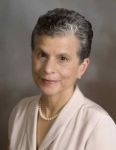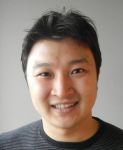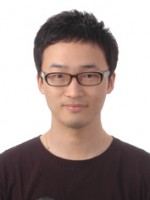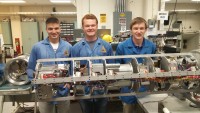The College of Engineering (COE) is pleased to present 34 new faculty for the 2015-16 academic year. The Department of Computer Science welcomes four new CS@VT faculty members.
Aisling Kelliher
For the past three years Aisling Kelliher has worked at Carnegie Mellon University’s (CMU) School of Design as an associate professor, where she also served as adjunct faculty in CMU’s Human-Computer Interaction Institute (HCII). She co-directed CMU’s Masters in Tan-gible Interaction Design program in the School of Architecture and lead transdisciplinary research in the Visible Process Lab. Kelliher creates and studies interactive media systems for enhancing reflection, learning, healing, and communication. Her work is grounded within the fields of human-computer-interaction, multimedia, and interaction design, and is motivated by a desire to integrate computational processes into everyday mediated experi-ences. Her current research explores the role of design in multiple interdisciplinary contexts including healthcare, learning cultures, and future studies. Working with colleagues in computer vision and machine learning, she is developing a home-based interac-tive neurorehabilitation system for stroke survivors. She has also worked on developing XSEAD.org, an online platform supporting networks of creativity and innovation across science, engineering, art, and design. The platform is currently being extended to support MakeSchools.org, a shared online knowledge base for U.S. universi-ties involved in the maker movement. Kelliher is also an advocate of speculative design practice and engages in research integrating design and future narratives. Findings from her research have been published in high-impact journals and conferences including ACM Multimedia, SIGCHI Conference on Human Factors in Computing Systems, World Wide Web, International Symposium on Electronic Arts, Futures Journal, and exhibited at leading national venues including SIGGRAPH, the Arizona State University Art Museum, and the DeCordova Museum. Her research is supported by grants from the MacArthur Foundation, SIU Norway, and the National Science Foundation. She serves as a reviewer for more than 15 journals and confer-ences and will be one of the program chairs for the ACM Multimedia conference in 2016. She writes a regular column called “Artful Me-dia” for the Institute of Electrical and Electronic Engineers’ MultiMe-dia magazine, and is also the technical correspondent for the radio show “Culture File,” broadcast weekly on Irish national radio. A native of Dublin, Kelliher holds a bachelor’s degree in commu-nications studies from Dublin City University and a master’s degree in multimedia systems from Trinity College, Dublin. In 2007, she graduated from the MIT Media Lab with a Ph.D. in media, arts, and sciences.
Na Meng
After receiving her doctorate in computer science from the University of Texas (UT) at Austin in December of 2014, Na Meng worked as a postdoctoral researcher, with her advisors: Miryung Kim and Kathryn S. McKinley. For the past six years she has focused her UT work on: generating program transformations from code change examples; locating and applying systematic edits by learning from examples; and exploiting systematic edits for refactoring. She also worked as a research intern with the RISE group at Microsoft Research during the fall of 2013. While in this position, she designed and implemented an approach to improve accuracy of applications that base computations on noisy estimated data from hardware sensors, machine learning, and crowd sourcing. Her approach, when implemented in a specific game called Simon, improved the accuracy from 60 percent to 89 percent. Her teaching experience includes two semesters in the class-room at Peking University and one at UT. She worked as a teaching assistant for a graduate level software engineering course and an undergraduate level software engineering course. Among her honors, Meng received an IBM scholarship in 2004 and a Hewlett-Packard scholarship in 2005. Northeastern University in China awarded her an Excellent Bachelor Thesis for her work in the software engineering department in 2006. Peking University presented her with its Excellent Learning Award in 2007. UT’s College of Natural Sciences honored Meng with a Dean’s Excellence Award. She is a reviewer for the Journal of Systems and Software. She was a reviewer of the 2015 Artifact Evaluation for CGO and PPoPP and the 2015 12th Working Conference on Mining Software Repositories. In 2013 she was a reviewer for the Journal of Empirical Software Engineering. She served as a sub-reviewer for the following: the 2014 International Symposium on Foundations of Software Engineering; the 2011 International Conference on Software Maintenance; the 2011 Conference on Programming Language Design and Implementation; and the 2010 International Symposium on Empirical Software Engineering and Measurement. She has 11 publications to her credit.
Alla Rozovskaya
For the past two years Alla Rozovskaya has worked on an automated system for a spelling and grammar correction project for the Arabic texts as a postdoctoral research scientist at Columbia University’s Center for Computational Learning Systems. With a 2013 doctorate in computational linguistics from the University of Illinois at Urbana-Champaign, she has worked on natural language processing (NLP), statistical and machine learning methods in NLP, and NLP for educational purposes and for social media. Rozovskaya has three master’s degrees to her credit. Two are also from the University of Illinois: computer science in 2010 and linguistics in 2007. Her third master’s degree is in French studies, received in 2003 from the State University of New York at Albany. Her undergraduate degree in English philology with honors was received in 1997 from the Institute of Foreign Languages, Tashkent, Uzbekistan. Among her awards, she was an invited participant in the Rising Stars in Electrical Engineering and Computer Science Workshop at the University of California, Berkeley in 2014. With colleagues from Columbia University, she also built an automated system that received a top ranking in the CoNLL Shared Task on Grammatical Error Correction in English, also in 2014. The 2014 QALB Shared Task on Automatic Arabic Error Correction awarded Rozovskaya and her same colleagues first place for the automated system they built. With collaborators at the University of Illinois, she built an auto-mated system that ranked first in several international competitions in text correction in English. These competitions were: Helping Our Own, 2011; Helping Our Own, 2012; and CoNLL Shared Task, 2013. With collaborators while obtaining her linguistics and computer science master’s degree, she built a semantic parser that ranked first in the SemEval-2007 Shared Task on Classification of Semantic Relations between Nominals. While at Illinois, she received a Beckman Cognitive Science/Artificial Intelligence Summer Fellowship in 2007. She also had a departmental fellowship that same year. Rozovskaya is a reviewer for the following publications: Journal of Natural Language Engineering; Transactions on Asian Language Information Processing; Traitement Automatique des Langues Journal; and Information Processing and Management Journal. She has served on 14 national and international conference program committees.
Francisco Servant
Francisco Servant received his doctorate in software engineering in June 2015 from the University of California, Irvine. His master’s diploma in information and computer sciences was awarded six years earlier from the same university. He received his bachelor’s degree in computer science in 2005 from the University of Granada, Spain. For the past seven years he has worked as a graduate student assistant, conducting research in mining software repositories, software analysis, and computer-supported collaborative work. His research focuses on software development productivity and software quality. He uses software evolution analysis and program analysis to create practical, efficient, and human-friendly techniques and tools that provide automatic support for all stages of software development. He held three different internships: with Microsoft Research, Redmond, Washington, summer of 2011; DreamWorks Animation, Glendale, California, summer of 2008; and Valeo Lighting Systems, Martos, Spain, fall of 2004. He also worked as a development sup-port engineer for Microsoft Corporation of Madrid, Spain from July 2005 until July 2007. Servant has six peer-reviewed publications and ten invited presentations. He served as a teaching assistant in six different courses and was a guest lecturer in another four. All were in the software engineering area. He is a reviewer for the Journal of Internet Services and Applications, the Journal of Systems and Software, and the Central European Journal of Computer Science. He served as an external reviewer for: the 2014 International Symposium on the Foundations of Software Engineering; the 2012, 2013, and 2014 International Conferences on Software Engineering; and the 2013 Working Conference on Software Visualization, both the Tool Track and the NIER Track. He also served in the program committee of the 2012 International Conference on Program Comprehension, Tool Track, and the 2012 International Working Conference on Mining Software Repositories, Mining Challenge Track. Among his awards, he held the Caja Madrid Foundation Fellow-ship for Graduate Studies from 2007 until 2009, a Dean’s Fellowship from the Donald Bren School of Information and Computer Sciences from 2009 until 2013, a SIGSOFT-CAPS Travel Award for ICSE in 2012, and a National Science Foundation Award for VISSOFT in 2013. He is a member of the Institute of Electrical and Electronic Engineers, the Association for Computing Machinery, the Special Interest Group on Software Engineering, and the Institute for Software Research at the University of California, Irvine.
Read More about the 34 new COE faculty.
Read More



